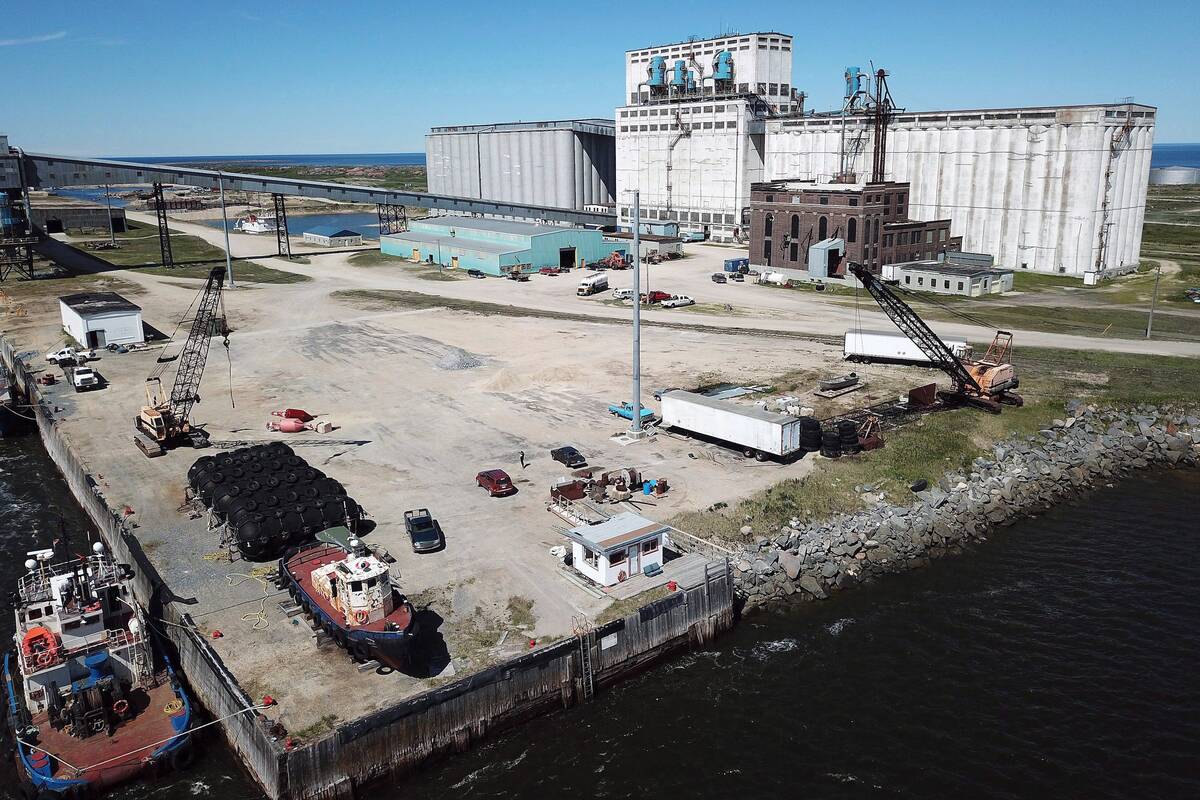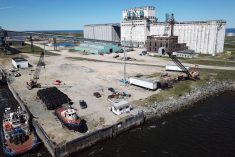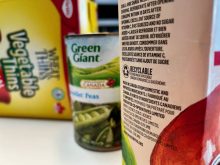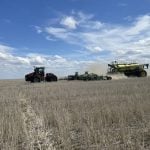McDonald’s Restaurants of Canada wants Canadian farmers to know they couldn’t do it without them.
The company rolled out a month-long advertising campaign this week with commercials featuring empty containers for its most popular menu items with the slogan “not without Canadian farmers.” Television and online commercials link consumers to its Our Food Your Questions website.
The campaign emphasizes that it buys the ingredients for items such as the Big Mac, Egg McMuffin and McFlurry, from Canadian producers — and in whopping big quantities.
Read Also

Air, land and sea join forces as Manitoba launches Arctic trade corridor plans
Manitoba wants to take its Arctic trade routes to the big leagues. The Port of Churchill, CentrePort Canada and Winnipeg airport have all raised their hands to help it happen.
“We spend almost a billion dollars on food ingredients every year in Canada alone,” Sherry MacLauchlan, the company’s director of government relations said in an interview Sept. 11. “Over 85 per cent of those purchases come from Canadian suppliers… so a large majority of our expense for food is domestic.”
Every year, McDonald’s Canada buys 143 million pounds of potatoes, many of which come from Manitoba, 52 million pounds of chicken, and 24 million litres of real milk and cream.
“We are the largest purchaser of ground beef in the Canadian restaurant industry,” MacLauchlan said, noting its purchases amount to 67 million pounds of ground beef.
As for eggs, it buys 120 million fresh eggs, 76 million of which go into its Egg McMuffins.
Pork is notably absent from that list. MacLauchlan said for some ingredients, purchases are made on a North American scale to take advantage of economies. For other food ingredients, such as lettuce and tomatoes, the company sources outside of Canada to maintain a consistent supply through all seasons as well as to meet specifications, she said.
However, she said its purchasing practices are under constant review to see whether more can be done locally.
“We’re really proud of our long-standing commitment to sourcing our ingredients right here in Canada, where ever possible,” she said.
MacLauchlan said the company wants to raise awareness among its customers that most of what they are eating when they go to McDonald’s comes from Canadian farms. “We have this longstanding commitment and history around sourcing our food ingredients in Canada. It is something we feel very strongly about as a Canadian company, but we realized we haven’t been telling the story.”
But she noted the company also wants farmers to know it listens to its customers. “We have the benefit of having a direct relationship with Canadian consumers — three million a day visit our restaurants,” she said. “And we can bring that back to the food value chain and all of the players in the chain and tell them what customers think.”
While consumers generally think highly of Canadian farmers and have confidence in the quality and safety of Canadian foods, they are increasingly interested in where the food is coming from, and how it is raised and processed.
McDonald’s has been working with the Canadian beef sector to identify and benchmark sustainable production practices. It has also just announced that over the next 10 years, it will move towards sourcing all of its eggs from cage-free operations.
“The eggs is a very good example — the public generally is very supportive of those kinds of measures,” she said.
Calla Farn, vice president of government and public relations for McCain Foods Canada, said her company is also conscious of its reliance on farmers for its success.
“Some of our farmers have been growing for McCain for three generations,” she said. “We are proud to support McDonald’s Canada in their effort to thank Canadian farmers.”


















